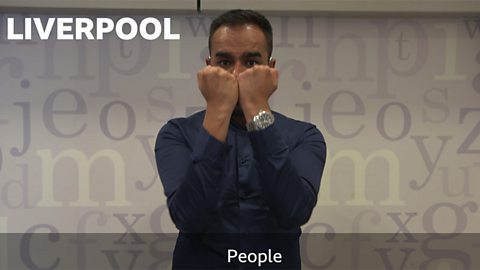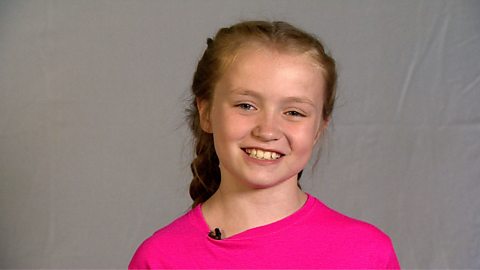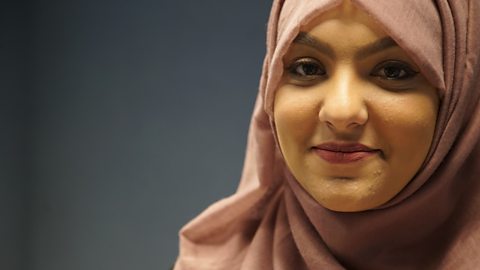Esmail Patel wants for more people like him to be visible in the mainstream and inspire others.
Until the age of 16, Esmail, who is deaf, used to lipread what his friends, relatives and teachers were telling him, a process that can be exhausting due to the level of concentration involved. That all changed when he went to college.
âI saw deaf people signing and wanted to learn that and so, with a teacher for the deaf, I did. I was struggling with Maths, English and science, but once I had the teacher, it gave me the opportunity for my confidence to grow. I prefer sign language,â says Esmail.
Esmail shows how to sign some common phrases in British Sign Language.
An evolving language
British Sign Language (or BSL) dates back as far as the 16th century, but was only officially recognised as a language in 2003.
Historically, deaf children in the UK were actively discouraged from communicating via gestures while at school, with lipreading and finger spelling (also part of BSL) preferred. Things changed from the 1970s onwards, with signing now appearing as part of TV broadcasts, music festivals, stage performances and political debates.
Just as the spoken word develops, so too does signing, with new words and phrases being added regularly.
There are around 150,000 adults and children using BSL in the UK today. Although there is a set alphabet and dictionary, signing has regional variations in much the same way as someone born and raised in Cardiff has a different accent to their Glaswegian counterpart.
Although there is a set alphabet and dictionary, separate regions developed their own way of signing, varying in much the same way as the different accents between Glasgow or Cardiff. For example, in London, the sign for âpeopleâ is two vertical strokes in the air. In Liverpool, itâs said by banging the sides of the fists together.
According to Esmail, thought, these variations are never a problem.

Picking up new words
âTo be honest,â he explains, âitâs really natural when you sign with new people from different areas. Thereâs all these regional signs that you pick up and use. In Scotland, the sign language is very different [to in England]. For example, the days of the week are spelled out on one hand there and they arenât in England.
"When I visit Wales, Scotland, London, anywhere, I can pick up their signs. Sometimes I will see a new words being signed and people will just explain what they mean to me so after that, you know the sign and can use it yourself.â
He continues: âIt works when youâre abroad too. I went to Egypt once and a deaf man came over to me, and slowly we built up a relationship of communication, picking out words and realising what different ones meant.
"Wherever you are abroad, you can use gesture so if youâre not sure of one⊠you can point at something and find out what the sign for that word is.â
Deaf role models
Sign language may have changed Esmailâs life, not to mention hundreds of thousands of others who use it, but he still feels there is more that could be done to integrate the deaf community into the mainstream.
âHearing people need a way of communicating with deaf people,â he says, âas deaf people have suffered with their mental health through lack of communication, so itâs important that hearing people raise awareness of deaf issues too.â
But what Esmail would really like to see are more role models: âPeople need to be able to look up to you as a professional. Thatâs really important.â
âItâs so important to have a deaf role model such as a nurse, doctor or social worker. Thatâs what we need to see,â he adds.
For more information about the deaf community, visit the .
This article was published in May 2019
14 ways you can help deaf children understand you better
Newsround's guide on what you can do to help a deaf child understand you better.

Amun: audiologist
Amun helps people who have hearing loss or dizziness because of their ears.

Six inspiring stories from incredible young people
Success isn't only reserved for adults. These young people did some incredible things, and you can too!
